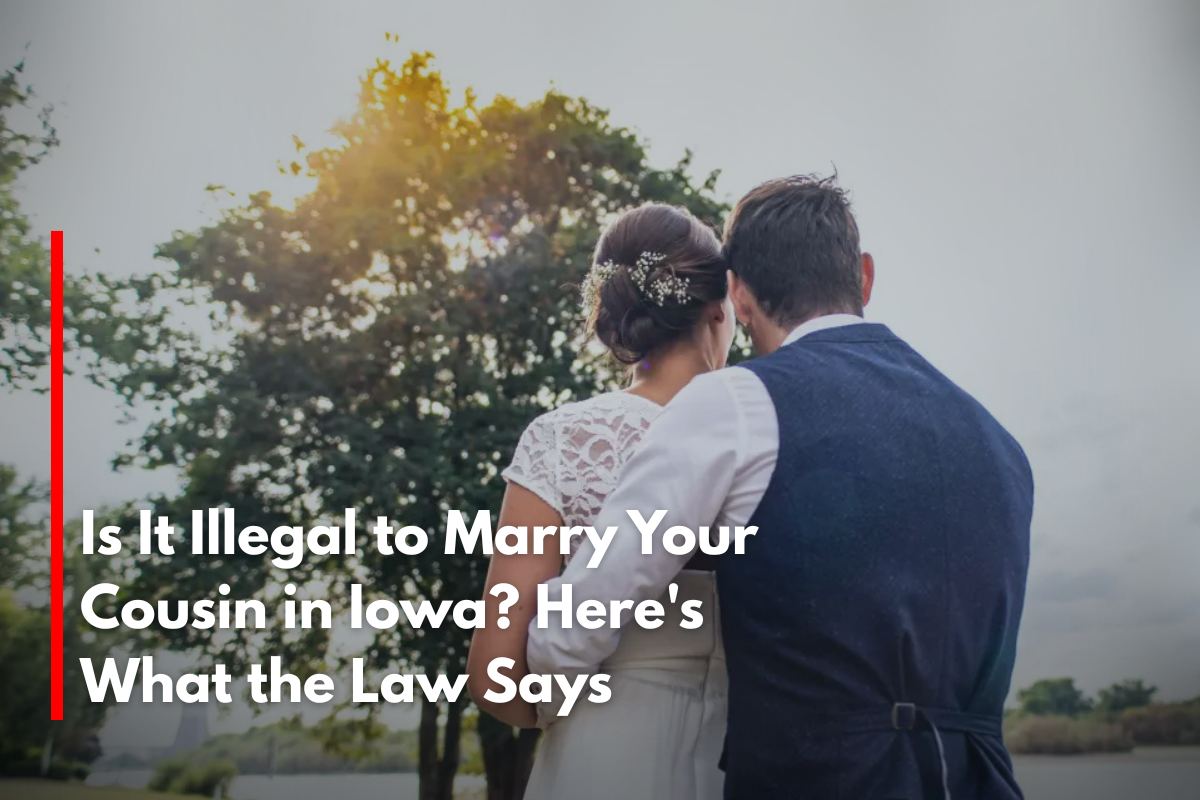Cousin marriage laws in the United States vary dramatically by state, and Iowa has some of the clearest, strictest rules on the books. If you’ve ever wondered about the legality of marrying your cousin in Iowa—whether due to personal circumstances, curiosity, or the many myths that abound—here’s a thorough breakdown of the law and its implications.
What the Law Says: First Cousin Marriage in Iowa
In Iowa, it is illegal to marry your first cousin.
According to Iowa Code Section 595.19, marriages between first cousins are explicitly void and not permitted. This prohibition is plain: it applies to both men and women, and the law lists “first cousins” as one of the specific relationships within which marriage is barred.
The Official Wording
The Iowa State Bar Association and other legal resources make it clear that marriages are void if the couple are “related as first cousins.” There are no exceptions in the law for age, infertility, or religious dispensation—the ban covers all circumstances.
What Relationships Are Prohibited?
Besides first cousins, Iowa prohibits marriage between close blood relatives, including:
Parent and child or grandchild
Siblings (including half-siblings)
Aunts/uncles and nieces/nephews
First cousins
This list is all-encompassing, aiming to avoid marriages that could pose higher genetic risks or that have historically been considered incestuous under state law.
Second Cousin and Distant Relative Marriage
While first cousin marriage is illegal, marriages between more distant relatives such as second cousins or first cousins once removed are legal in Iowa. The law only specifies the first cousin relationship as forbidden—meaning greater degrees of separation fall outside this prohibition and can marry legally without restriction.
Can You Marry a First Cousin from Out of State?
Many couples wonder what happens if they legally marry their first cousin in a state where it’s allowed, then move to Iowa. The law is gray on this point. Some states recognize marriages performed elsewhere, even if those unions would be illegal at home, but Iowa’s statutes and guidance generally indicate that a first cousin marriage, even if performed out of state, may not be recognized and could be considered void within Iowa.
Why Is There a Ban?
The ban on first cousin marriage stems largely from traditional concerns about genetics and family structure, which were incorporated into most U.S. state laws in the 19th and 20th centuries. While scientific opinion on the risks has evolved, state statutes like Iowa’s have remained firm.
What About Unions Other Than Marriage?
While marriage is prohibited, Iowa’s law addresses only the legality of marital unions, not whether first cousins may live together or have a romantic relationship—although other laws regarding sexual conduct between relatives may still apply.
Bottom Line
First cousin marriage is illegal and void in Iowa, with no special exceptions.
Marriages between more distant cousins (second cousins, first cousins once removed, etc.) are permitted.
If you are considering marriage to a first cousin, you will need to seek another state—and even then, recognition in Iowa may not be guaranteed.
These regulations highlight the importance of checking current state and local laws before proceeding with marriage involving family members.
For legal advice or clarification on specific circumstances, consult a qualified Iowa family law attorney or the state legislature.
Sources
[1] https://theamm.org/marriage-laws/iowa/606
[2] https://law.justia.com/codes/iowa/2014/title-xv/subtitle-1/chapter-595/section-595.19
[3] https://law.justia.com/codes/iowa/title-xv/chapter-595/section-595-19/
[4] https://www.iowabar.org/?pg=MarriageAndDivorce
[5] https://dataminingdna.com/can-first-cousins-marry-in-iowa/











